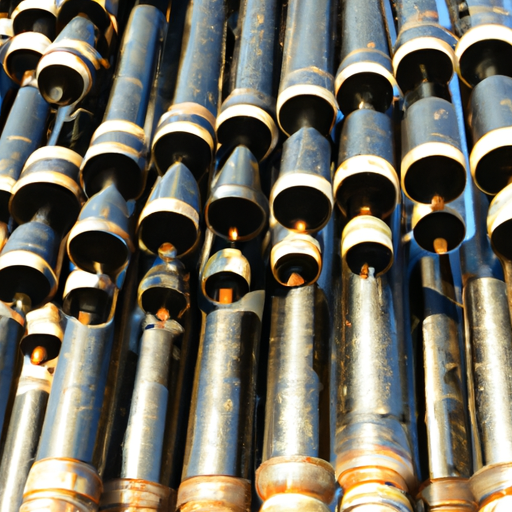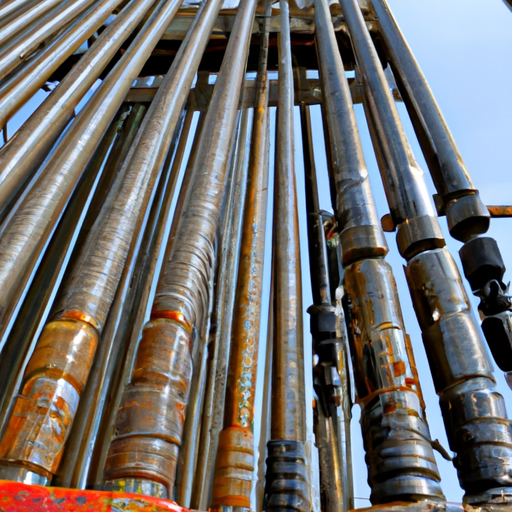The Importance of Drill Pipe Protectors: Safeguarding the Lifeblood of the Oil and Gas Industry

Introduction:
In the vast and intricate world of the oil and gas industry, drill pipe protectors play a critical role in ensuring the efficiency, safety, and longevity of drilling operations. As a vital component of drilling equipment, drill pipes connect the drilling rig to the drilling bit and are subjected to extreme conditions during the drilling process. To safeguard this significant investment and maintain operational integrity, drill pipe protectors are essential. This article explores the various aspects of drill pipe protectors, their significance, types, and benefits, highlighting why they are indispensable in the oil and gas industry.
1. Understanding Drill Pipe Protectors:
Drill pipe protectors are devices designed to shield the drill pipe's threaded connections, also known as tool joints, from damage during transportation, storage, and handling. These protectors act as a barrier against external elements, such as corrosion, impact, debris, and harsh weather conditions, which can compromise the integrity and performance of the drill pipe.
2. Significance of Drill Pipe Protectors:
2.1 Protection against Corrosion: Drill pipes are exposed to various corrosive agents, including moisture, chemicals, and salts present in drilling fluids. Drill pipe protectors prevent direct contact between the tool joints and corrosive substances, minimizing the risk of corrosion and extending the lifespan of the drill pipe.
2.2 Damage Prevention: The tool joints of drill pipes are vulnerable to damage during transportation and storage. Drill pipe protectors act as a cushion, absorbing impacts and preventing scratches, dents, and other forms of physical damage that can compromise the structural integrity of the pipe.
2.3 Cost Savings: By safeguarding drill pipes from damage, drill pipe protectors reduce the need for repairs or replacements, resulting in substantial cost savings for drilling companies. By extending the lifespan of drill pipes, protectors optimize operational efficiency and reduce downtime due to equipment failures.
2.4 Crew Safety: Drill pipe protectors provide an added layer of safety for the crew involved in handling and connecting drill pipes. By reducing the risk of accidents caused by damaged or corroded tool joints, protectors contribute to a safer working environment.

3. Types of Drill Pipe Protectors:
3.1 Thread Protectors: Thread protectors are the most commonly used type of drill pipe protectors. They are designed to cover the threaded connections at each end of the drill pipe, safeguarding them from corrosion, impact, and debris. Thread protectors can be made from various materials, including plastic, composite, and metal, with each offering different levels of protection and durability.
3.2 Bumper Rings: Bumper rings are another type of drill pipe protector that provides extra protection to the pipe's body, not just the threaded connections. These rings are placed at specific intervals along the length of the pipe, reducing the risk of damage caused by friction or collisions with other pipes during transportation or storage.
3.3 Lift Caps: Lift caps are protective caps specifically designed to protect the top end of the drill pipe during lifting operations. These caps prevent damage to the pipe's pin connection, ensuring the integrity of the entire drilling string.
4. Advantages of Drill Pipe Protectors:
4.1 Enhanced Equipment Performance: By preserving the integrity of the drill pipe, protectors help maintain optimal drilling performance. Protected tool joints allow for efficient torque transfer and reduce the risk of connection failures, enhancing drilling operations.
4.2 Longevity of Drill Pipes: Drill pipe protectors significantly extend the lifespan of drill pipes by preventing premature wear and damage. This translates into substantial cost savings for drilling companies as they can maximize the usage of their equipment.
4.3 Reduced Environmental Impact: Protecting drill pipes with appropriate protectors reduces the risk of oil and gas spills caused by equipment failure. This proactive approach helps safeguard the environment from potential pollution incidents.
4.4 Compliance with Industry Standards: Drill pipe protectors ensure compliance with industry standards and regulations, which emphasize the importance of maintaining drilling equipment in optimal condition. Companies that prioritize the use of protectors demonstrate their commitment to safety and quality.
Conclusion:
Drill pipe protectors are a vital investment in the oil and gas industry. They provide essential protection to the threaded connections and body of drill pipes, safeguarding them from corrosion, damage, and environmental hazards. By utilizing drill pipe protectors, drilling companies can enhance equipment performance, extend the lifespan of drill pipes, reduce operational costs, and prioritize the safety of their crew. Embracing the use of protectors is not only a sound business decision but also a responsible approach to ensuring the longevity and sustainability of drilling operations.




 8613371530291
8613371530291